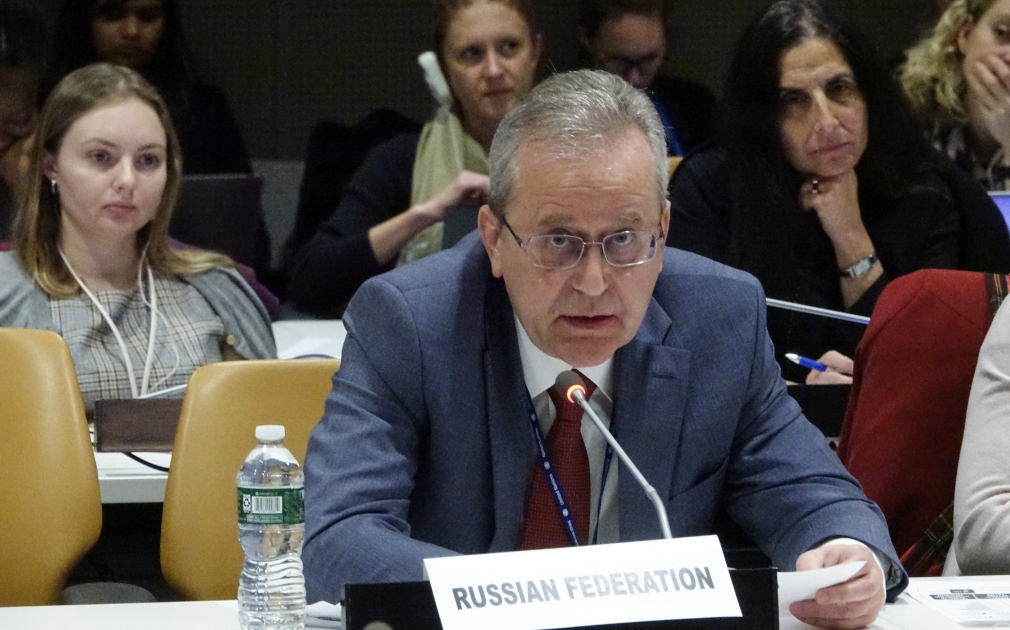Statement by Mr. Sergey Kononuchenko, Deputy Permanent Representative of the Russian Federation to the United Nations, on the Briefing on UN High Level Meeting on Tuberculosis
Thank you, Madam Chair,
Dear colleagues,
Russia attaches great importance to the fight against tuberculosis. Our approach is based on the idea that solely medical response is not enough for stopping the spread of this infection. It is necessary to eliminate its root causes, among which are inadequate living and working conditions, environmental degradation and a number of other factors.
We believe that the decision to convene the UN High Level Meeting on the Fight against Tuberculosis in 2018 is timely. We expect that it will address the problem through a multisectoral approach.
An important milestone leading to the upcoming HLM is over.
The First WHO Global Ministerial Conference on “Ending Tuberculosis in the Sustainable Development Era: a Multisectoral Response” was held on November 16-17, 2017 in Moscow.
More than 1200 delegates from 120 countries, 80 ministers of health and heads of other ministries and agencies, as well as UN system organizations, representatives of NGOs, private sector, academia and trade unions – all took part in it.
The decision to hold the Conference in Moscow is linked to significant results that our country has achieved in the fight against TB. For the past 8 years the total incidence of tuberculosis in Russia has declined by more than 37%, the death rate – by more than 66%. This was made possible because of the firm political will of the leadership of our country, the use of a multisectoral approach, the stable financing of the healthcare sector, the development and implementation of innovations in diagnosis, treatment and prevention of tuberculosis, taking into account the global antimicrobial resistance agenda (AMR).
It is important that the whole set of measures to combat tuberculosis, from prevention and drug provision to sanatorium treatment and rehabilitation, is free of charge for Russian citizens. In addition, a wide range of social support measures for tuberculosis cases is being implemented.
The outcome document of the Conference is the Moscow Declaration, which is a result of hard work of the expert community in the format of intergovernmental negotiations held in Geneva. It also takes into account a large number of recommendations of non-state stakeholders.
The Declaration identified priority multisectoral measures to eliminate tuberculosis by 2030. Among them are: universal access to health services and social support for TB patients; prevention of stigmatization and discrimination of patients; ensuring adequate and sustainable financing of TB programs; intensification of scientific research with the aim to develop new effective drugs, short treatment regimens, diagnostic tools for accelerated detection of drug susceptibility and new effective vaccines; development of a multisectoral system of accountability that allows not only to monitor the situation, but also to take the necessary actions promptly; intensification of the fight against MDR-TB in the context of the global AMR agenda; intensification of the fight against tuberculosis associated with HIV infection.
The Conference, its ideology, goals and targets were supported by the main international forums – APEC, G-20, BRICS.
In conclusion, I would like to thank our colleagues from Thailand, Japan, South Africa and WHO Office in New York for organizing this briefing. The Russian delegation is interested in the successful UN High Level Meeting and will make every effort to develop a substantive outcome document based on the conclusions and recommendations of the Moscow Declaration.
Thank you.
